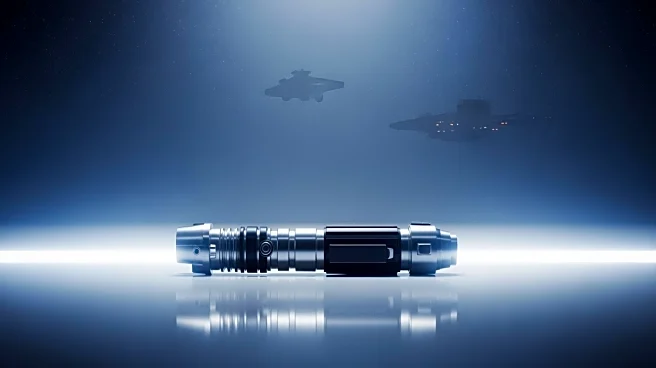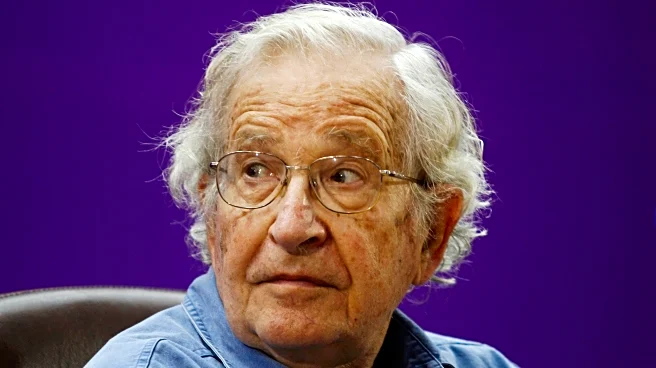What's Happening?
Star Wars fans have expressed their disappointment over Disney Studios' decision to reject a proposed sequel titled 'The Hunt for Ben Solo.' The film, developed by actor Adam Driver and director Steven
Soderbergh, was intended as a follow-up to 'Star Wars: The Rise of Skywalker.' Despite spending two years on the project, Disney declined the proposal, citing concerns over the character's continuity. In response, fans commissioned a plane to fly a banner over Disney Studios in Burbank, California, reading 'Save The Hunt for Ben Solo.' Driver revealed that Lucasfilm executives were initially interested in the project, but Disney CEO Bob Iger and co-chairman Alan Bergman ultimately decided against it.
Why It's Important?
The rejection of 'The Hunt for Ben Solo' highlights the ongoing tension between fan expectations and studio decisions in the Star Wars franchise. Fans have a strong emotional connection to the character of Ben Solo, played by Adam Driver, and the decision not to pursue the sequel has sparked significant fan activism. This incident underscores the influence of fan communities in shaping studio decisions and the potential impact of their advocacy on future projects. The decision also reflects Disney's cautious approach to expanding the Star Wars universe, prioritizing continuity and financial considerations over fan-driven narratives.
What's Next?
While Disney and Lucasfilm have declined to comment further, the fan protest may prompt the studios to reconsider their approach to future Star Wars projects. The strong fan response could lead to discussions about alternative ways to continue the story of Ben Solo, potentially through other media formats or spin-offs. Additionally, the incident may influence how Disney engages with fan communities in the future, balancing creative vision with audience expectations. The studios may also explore new strategies to maintain the franchise's popularity and address fan concerns.
Beyond the Headlines
The rejection of the sequel proposal raises broader questions about the creative direction of the Star Wars franchise under Disney's management. It highlights the challenges of maintaining a balance between innovative storytelling and adherence to established canon. The incident also reflects the evolving role of fan communities in influencing media production, as their advocacy can shape the narrative and impact studio decisions. This development may lead to a reevaluation of how studios interact with fans and incorporate their feedback into future projects.










